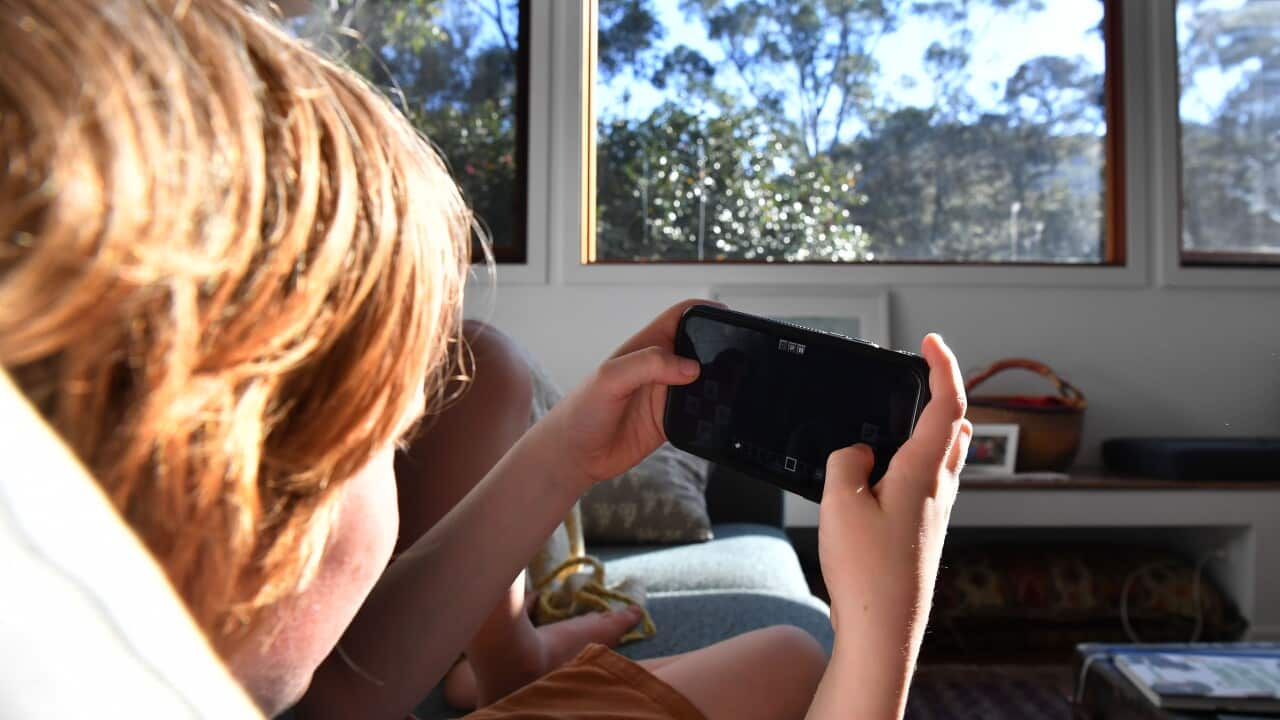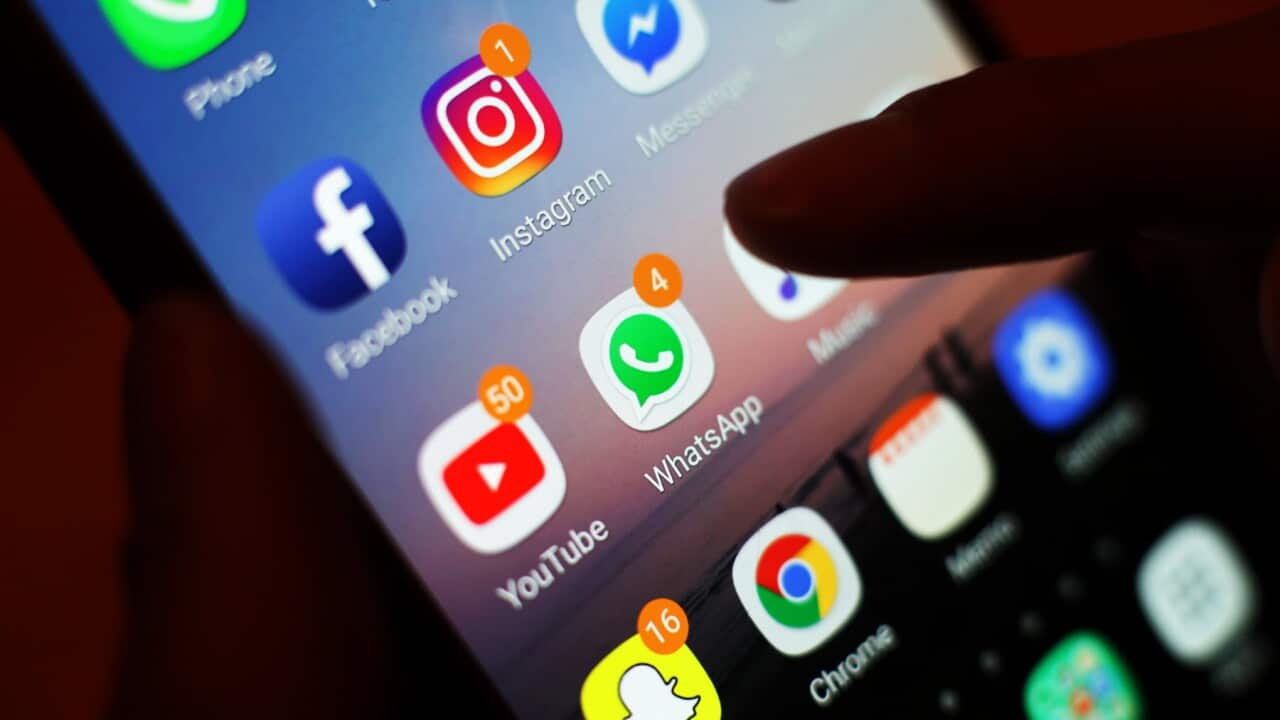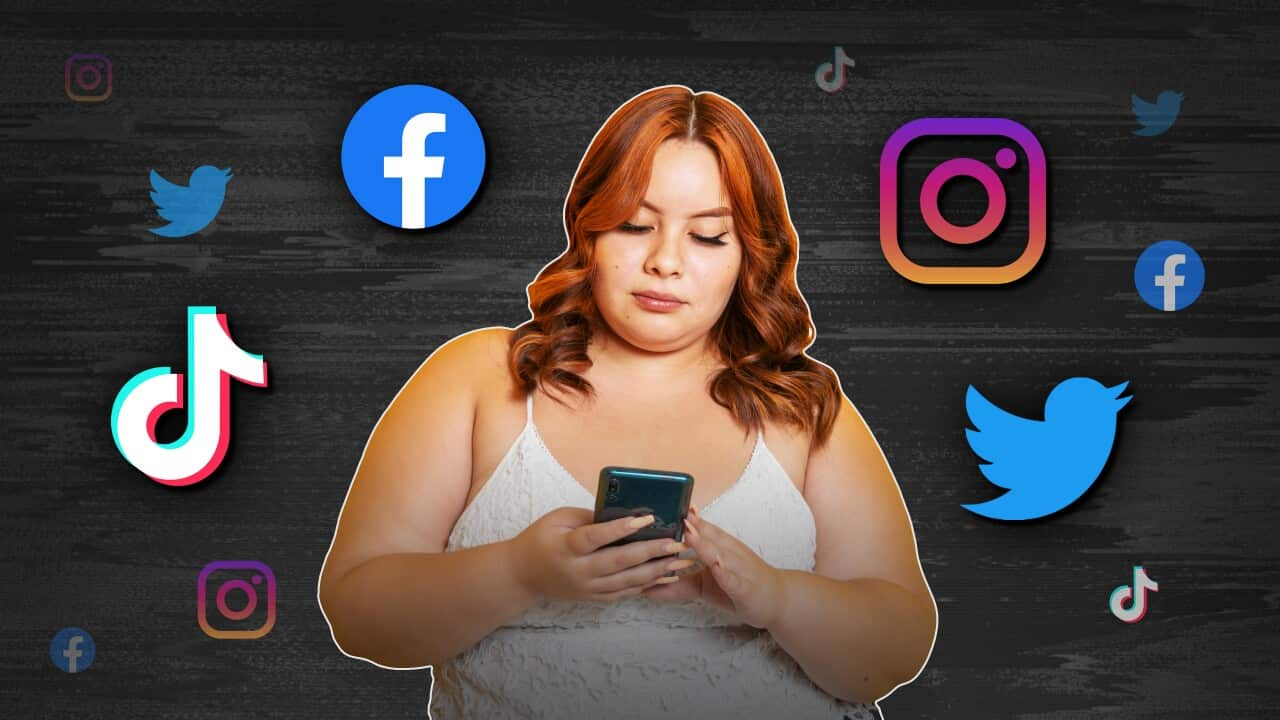Key Points
- A survey has found many young Australians want to disconnect from social media, but feel pressure to stay online.
- One in three young people experience problematic social media use, according to mental health foundation Headspace.
- Many young people also struggle with comparing their lives with those they see online.
Half of young Australians want to disconnect from social media but fear of missing out keeps them logged in.
Many young people realise , with almost half of respondents to a survey saying what they see online is more negative than positive.
Despite that, one-third feel like they should use social media more and feel pressured to keep abreast of its news and current events.
One in three youth experienced problematic social media use, according to the survey by mental health foundation Headspace.
More young women than young men fell into the problematic category, and the rate was higher still for young people who identified as LGBTIQ+ (45 per cent).
"Young people thinking of logging off might experience a fear of missing out on news, popular culture or conversations with friends," Headspace chief executive Jason Trethowan said.
"They may also worry about how going offline could impact their status or influence."
Almost half of young people compared their own lives with those they saw on social media.
Gerard-Lachlan Abadines, 18, said social media could sometimes make him feel inadequate.
At one point, he found himself comparing his life to that of American singer Billie Eilish, given their similar age.
There were times when Mr Abadines had to reassess his relationship with social media, he said.
"It can be easy to judge yourself and compare yourself to others, because people put up the best of themselves out there," he said.
Switching off from social media was easier said than done when platforms were designed to keep people scrolling, Mr Trethowan said.
"That's why the responsibility to foster healthy social media habits can't rest solely on the shoulders of young people or their families."
Social media companies and governments must ensure young people have a safe and healthy experience online, Mr Trethowan said.
He stressed young people still have positive experiences using social media.
Mr Abadines used social media as a hub to connect with friends, communicate with his family, play games and watch content created by others.
"Features such as blocking and restricting are really helpful," he said.
"You turn off the more toxic aspects of social media."
About 40 per cent of young people said what they found online was empowering, and two in five believed social media was a good place to make friends.
Almost half of young people also agreed it was easier to express their opinions online rather than in person, while more than half wanted more stringent laws and regulations governing social media.
More than 3,000 young people took part in the survey.
Readers seeking support with mental health can contact Beyond Blue on 1300 22 4636. More information is available at .
supports people from culturally and linguistically diverse backgrounds.











